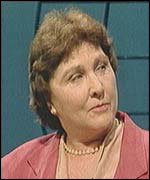|
Moral Panic - Child
Sexual Abuse |
|
|
It has been obvious for many years
that the current Medical Practitioners Act is simply too inflexible to meet
the needs of today. However, despite many promises of politicians and the
demands of the medical profession itself, the preparation of new legislation
by the Department of Health has been continually delayed for more than a
decade. The cabinet's legislative
programme contains a commitment to publish a new bill by early 2004, but
despite numerous attempts, in particular by Labour deputy leader Liz McManus,
to tie down the Taoiseach to a specific date for the bill, the government has
remained remarkably vague on this issue. However, the public disquiet in the
wake of the Neary controversy has meant that the government is likely to be
forced to move relatively quickly on introducing the new bill to govern the
medical profession. It is expected that the government will propose new
powers for the medical council in its role of policing the profession and
streamline the measures available for protecting the public. Up to now, the medical council has
been largely a reactive body, responding to complaints made against doctors
in a strongly legalistic manner, which has led to widespread concern at the
length of time taken to process cases. In the future, the council will move
towards being a more pro-active body, demanding and ensuring that doctors
prove on a regular basis that they are able to do the job. Under the new bill, doctors will
be forced to undergo continuing medical education and be subject to audit of
their practices. Doctors will, in effect, only have a licence to practise for
five years at a time and will have to show that they have maintained their
skills before this permit is renewed. Much of this reform has been
proposed by the medical council. Voluntary continuing medical education
schemes have been introduced and audit procedures are expected to follow next
year. The new bill will give legal
backing to these initiatives and effectively make them compulsory for doctors
if they want to retain the right to treat patients. In a discussion document on
competence assurance issued in 1998, the council said that "it is no
longer acceptable for bad doctors to be identified and sanctioned. Our responsibility as a
self-regulating profession must be to ensure that patients do not come to
harm in the first place". It is understood that in the
planned new reforms the government will also seek to tackle the overly
legalistic structures which the council currently must use to deal with
complaints. Many patient groups and those who
have made complaints against doctors have argued that these procedures
increase the amount of time it takes for cases to be heard. The women whose wombs and ovaries
were removed by Neary were not the first group to complain at how long the
medical council process took. The families who made complaints against the
prominent doctor and social campaigner Moira Woods over allegations that they
had been falsely accused of child abuse claimed that it took 10 years for
their cases to be processed by the council. Woods was found guilty of
professional misconduct last year. As part of the new reforms, the
council wants legal powers for the establishment of a Health Procedures Committee
which would deal with complaints made against doctors on the grounds of ill
health or alcoholism. This would prevent such cases having to be heard by a
formal disciplinary committee. The Irish Hospital Consultants
Association has proposed that there should also be a separate body
established by the council dealing with minor complaints against doctors
which would leave the main Fitness to Practise Committee free to concentrate
on the more serious complaints. The government is also likely to
address the membership requirements of the council. Under the law at the moment there
has to be at least one nonmedical lay person on each Fitness to Practise
Committee. Council sources said that this
presented major pressures on the few lay people available. The council and the consultants'
association has asked the government to expand the existing 25-person
membership of the council to allow for the appointment of additional
non-medical members. The IHCA has argued that there should be more than one
Fitness to Practise Committee, which would allow for several disciplinary
cases to be heard simultaneously. The government, in the new
reforms, is also likely to liberalise the procedures for the council
suspending doctors from practice in emergency circumstances where there is
deemed to be a risk to the public. Under current legislation, the
council has power to seek a High Court order to suspend a doctor in these
circumstances. Under such an order, the doctor is effectively considered
guilty until proven innocent and, if granted by the courts, cannot work until
the substantive disciplinary hearing is concluded. However, in its interpretation of
this provision in the current act, the High Court has ruled that the council
should not publicly make known the details of such cases other than to a
doctor's employer. Sources say that this may be understandable if the doctor
works directly for a hospital or a health board. However, if the doctor is in
general practice (where they generally are self-employed), patients would not
know whether and in what circumstances their family doctor had been removed
from practice.
December 1998: Independent January-April 1999: A review by members of the The Medical Council applies to
have Neary's name taken off the register of medical practitioners pending the
outcome of a fitness to practice inquiry, to be held in private. Neary
tenders resignation. November 2002: High Court awards Alison Gough
.273,223 against Neary and July 2003: Supreme Court upholds the Gough
ruling but reduces damages by .50,000. Neary is struck off the medical
register by the Medical Council as being unfit to practice. He has 21 days in
which to appeal to the High Court. |

